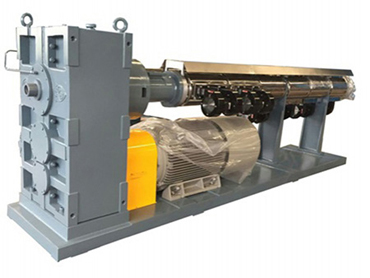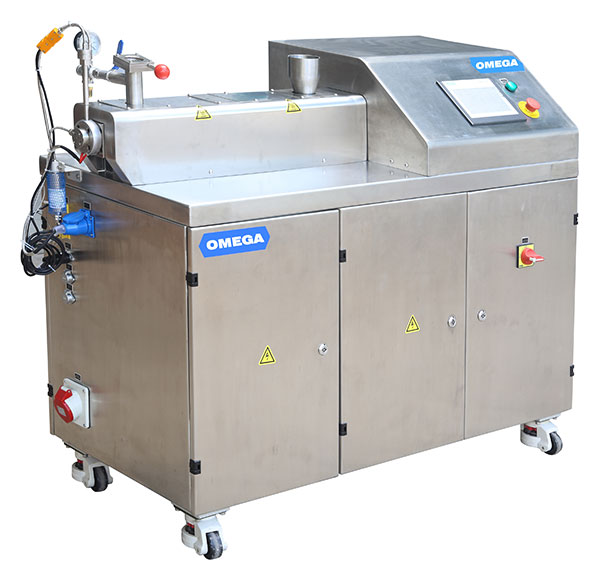Copyright © Shanghai Omega Machinery Co., Ltd. All rights reserved.
What is the difference between single screw extruder and twin extruder?
Jul 06,2023
Why Choose a Single Screw Extruder?
Cost-Effective: Single screw extruders often come with a lower price tag, making them a popular choice for those conscious of their budget.
Versatility: They are suitable for a wide range of applications, including the production of plastic pipes, profiles, sheets, and films. From simple to complex shapes, the single screw extruder can handle them all.
Ease of Operation: With a simplified design and fewer components, single screw extruders are generally easier to operate and maintain.
Why Opt for a Twin Extruder?
Increased Output: With two screws churning in unison, twin extruders can achieve higher production rates compared to their single screw counterparts. This makes them ideal for large-scale manufacturing.
Enhanced Mixing: The dual-screw configuration facilitates improved mixing and compounding of materials, leading to better homogeneity and uniformity in the final product.
Specialized Applications: Twin extruders excel in complex processes such as co-extrusion, where multiple materials are simultaneously extruded to create composite products. This makes them a preferred choice for industries such as packaging, food processing, and pharmaceuticals.
Which Extruder is Right for You?
Choosing between a single screw extruder and a twin extruder depends on various factors, including your specific requirements, budget, and the nature of your production. Here are a few guidelines to consider:
Product Complexity: If you primarily deal with simple shapes and standard extrusion processes, a single screw extruder should suffice. It offers versatility at an affordable cost.
Large-Scale Production: When you need to ramp up production volumes and achieve higher output rates, a twin extruder becomes an attractive option. Its synchronized screw configuration delivers the required performance.
Advanced Applications: If your production demands involve co-extrusion, compounding, or specialty materials, a twin extruder's enhanced mixing capabilities make it a more suitable choice.
Prev News Next News
- Information
- How should one select the molding equipment when generating PP water supply pipes?
- Why do the surfaces of extruded profiles have weld marks when extruding? What are the solutions to eliminate these marks?
- Why do large, dull and unreflective bubbles appear on the surface of the special profiles? How can this problem be solved?
- What causes the uneven surface and poor gloss of the sheet during the sheet extrusion process? How can it be solved?
- Why does the cooling process for profile extrusion become unbalanced?
- What countermeasures can be taken to improve the dimensional and positional accuracy of profiles during the profile production process?
- How should profile molds be cleaned and maintained?
- What are the corresponding solutions to the phenomenon of grooves and pits on the surface of profiles?
- How should the raw materials be selected in the formula for PVC surface skin core layer microcellular foamed extruded profiles?
- How should the production process of biaxially oriented polyethylene terephthalate (BOPET) film be controlled?
- Contact Us

-
Shanghai Omega Machinery Co., Ltd.
Add.: No.168 Hualian Road, Putuo District, Shanghai City
Contact: Nina
Tel.: +86-021-69921527
Mobile: +86-15021464410
Fax: +86-021-69921567
E-mail: omegajessica@163.com;965425705@qq.com
WeChat No.: 1131449532
Whatsapp: +86 159 0054 6558

-

